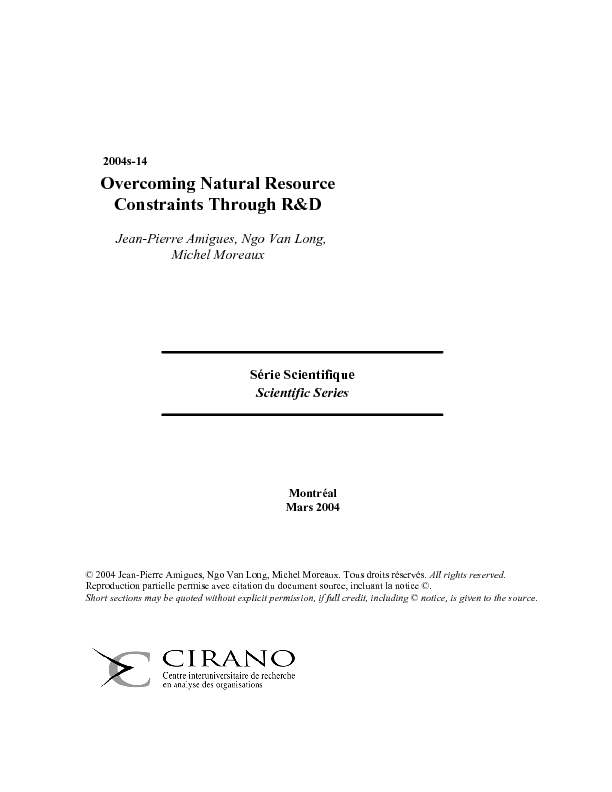Overcoming Natural Resource Constraints Through R&D
We study the optimal policies of research and development in the context of a resource-exploiting economy. We distinguish two cases: non-renewable resources and renewable resources. In the first case, we show that it is useful to construct an index of scarcity, which is the product of the level of technical know-how and the aggregate stock of resources. Provided that the rate of discount is not too high, there exists a critical level of this index, below which one must maximize the rate of investment in R&D. Starting from this critical level, it is possible to maintain a constant rate of consumption, by substituting knowledge for natural resources. In the case of renewable resources, we show that the optimal policy is to give priority to the production of consumption goods, and the rates of investments in R&D are determined residually.
[ - ]




